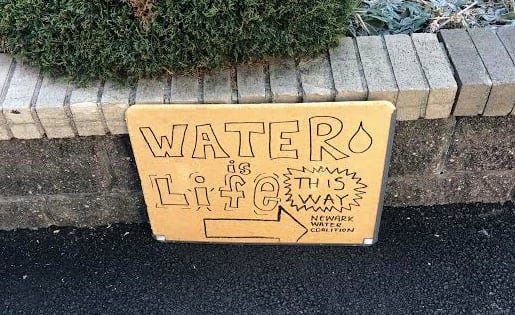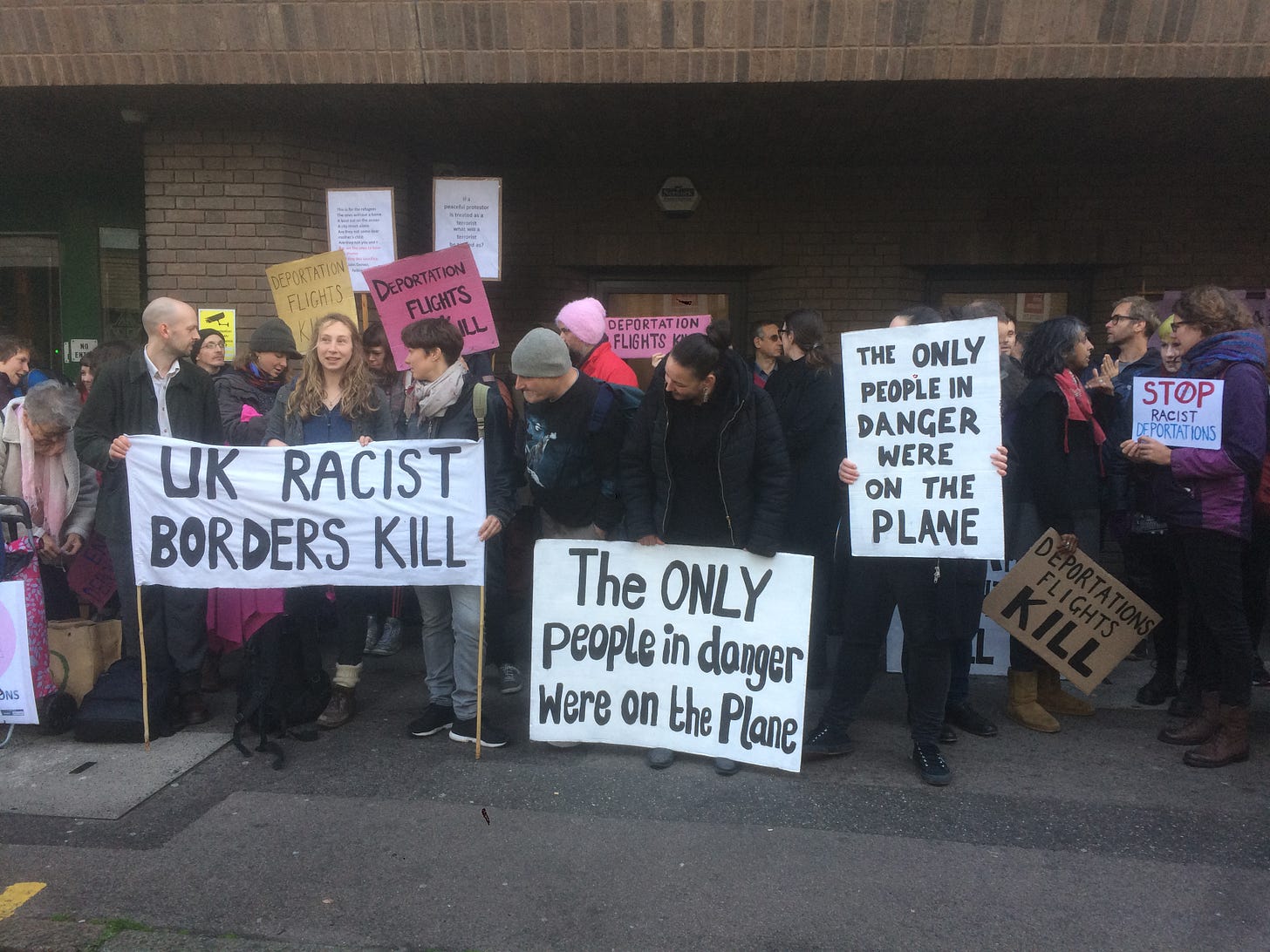#1
After putting it off for years, quarantine—and a couple new stories I’d like to share, and a friend inadvertently shaming me into this by starting his own Substack last week—has finally pushed me to do what was probably always inevitable: a newsletter with the sort of brazen self-promotion that makes me queasy.
I don’t expect this newsletter to be a regular occurrence—just when I have new work to share, and I have never been particularly prolific. But as it happens, I have a couple recent stories, as well as a recap of sorts to get everyone up to speed!
Back in the other lifetime that was February, The Progressive sent me out to the Bay Area to report on San Francisco’s efforts to eliminate the myriad fees and fines that keep poor communities saddled with debt. Among numerous other reforms, the city has eliminated criminal justice administrative fees and canceled $32.7 million in debt owed by 21,000 people, ended fees on calls from county jails, cut or eliminated car-towing fees for low-income people, and cleared 88,000 holds on driver’s licenses for people who missed traffic court. Those initiatives are now being replicated, in a more piecemeal fashion, in cities across the country.
I spent a week hopscotching around San Francisco, Oakland, and Berkeley, staying in a cooperative house in South Berkeley, hanging out with people impacted by those fees and fines, and squeezing in a hike on the Berkeley Fire Trails, a run through the UC Berkeley campus, and a ferry ride across the Bay. (Thanks to jet lag for those last three early-morning activities.) The story is out now in the current issue of The Progressive:
Cutting the Poor a Break: San Francisco pioneers a program to reduce fees and fines that keep people from succeeding. The Progressive. April/May 2020.
Last summer, the lead crisis in Newark, NJ, made national news. Lead levels in the city’s water supply had risen far above the action level set by the EPA and local officials were under fire for how they were handling the crisis. But by early 2020, chaos and coverage had both subsided, and I became curious about what was happening in Newark. The city was saying that the crisis had passed and was taking some good steps to address the problem. And yet, lead remained far above the EPA’s action level. And the city had ceased distributing water to all but pregnant women and families with children under age 6. And a study had found that one-quarter of the water filters being used by residents to reduce lead to a safe level had not been installed correctly, which is to say that people were drinking water they believed to be safe but was not. So I wrote about it for The Intercept:
Newark’s Lead Crisis Isn’t Over: “People Are Still Drinking Water That They Shouldn’t.” The Intercept. March 15, 2020.

As many of you know, I lived in the UK from fall 2017 to spring 2019. The first year was spent completing a Master’s degree, commuting from Oxford to Paris to research young far-right activists. The last six months were spent in north London, where I returned to journalism after that year-long hiatus. A couple of the stories that I wrote during that time remain some of my favorites, and I’m now taking the opportunity to retroactively promote them in case anyone missed them the first time around:
One week before the original Brexit deadline and ten days before my UK visa expired, I went up to Edinburgh and Glasgow to speak with the activists and politicians campaigning for a second referendum on Scottish independence, hoping their enthusiasm for leaving the UK would make me feel better about my impending expulsion. It didn’t, but I wrote about them for Harper’s anyway:
English Referendums and Scotch Voters: After years of post-Brexit uncertainty, Scotland’s independence movement has become resurgent. Harper’s. June 19, 2019.
The case of the Stansted 15, a group of activists who locked themselves around a plane that had been chartered by the UK government to deport migrants and asylum-seekers, fascinated me (and much of the UK public) for two reasons: It revealed the government’s little-known practice of chartering private deportation flights and it marked an attempt to convict nonviolent protesters of a terrorism-related offense, which carried a possible life sentence. I went out to the courthouse in Chelmsford, a city about 30 miles northeast of London, to witness the trial and write about the case for The Intercept:
These Activists Blocked Migrant Deportations. They Now Face Life Imprisonment in the U.K. The Intercept. November 17, 2018.
I visited Chelmsford twice more to do short follow-up pieces on the Stansted 15 case when the guilty verdict was announced and when the activists were sentenced. The appeal process is ongoing.

Now that we’re all caught up, I expect future newsletters to be a bit shorter. (But if you’d still prefer to unsubscribe, there’s a link in the footer.)
Thanks for reading! Until next time, I hope everyone stays safe and sane. For what it’s worth, my favorite pastimes—knitting, running, gluten-free baking, and daily yoga—are all pandemic-approved and highly recommended. But don’t overdo it on the running when you get excited about warmer weather and your first couple 5-mile outings—you might end up with a stress fracture, writing a newsletter with your right foot elevated on a pillow and your folded-up winter coat.
